[ page 2 ]
Soviet BlackJack bomber in 1/72 scale making the AModel Tupolev Tu-160
Engine fairings
Next Steps 9-12; Step 15, 18 ;
The engines are in two fairings below
the wing gloves. You have to open up first the intakes in step 7. The white
parts need some cleaning and sanding. The engine fan after some cutting
can be set into position from the rear of the fairings. (Paint the fans
now as they are unreachable later on).
The rear edge of parts #105+108 were
bended downwards and this will give a nice view to the engine fans.
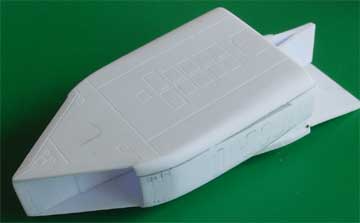
The engine fairings take a lot of
work, but they have to correct size. Make sure not to mix up parts here.
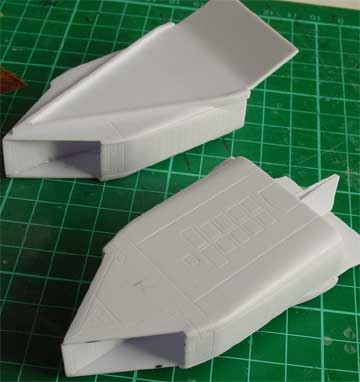
Sand smooth and use putty here.
A piece of plastic card was blended in (as part #130 was not used) in the lower area. Also assure a good fit with the forward area with nose wheel bay.
The major problem is to get the
forwards engine sections to fit onto the rear fuselage sections.
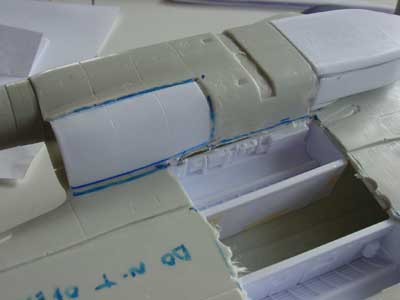
You need a smooth fit with lots of
putty and sanding. It takes several putty coats to get a good end result.
Now, fitting the forward engine fairing
section to the rear is next....
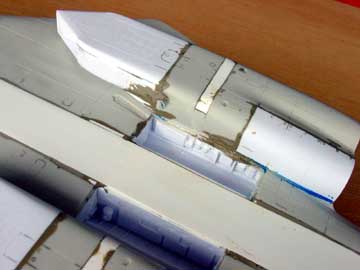
Note the white card in the slot at
the engine fan positions, as the slot was NOT cut open in step 7. Fill...
and fil....
Again, on the lower areas, you need
a lot of work to get engines to fit!
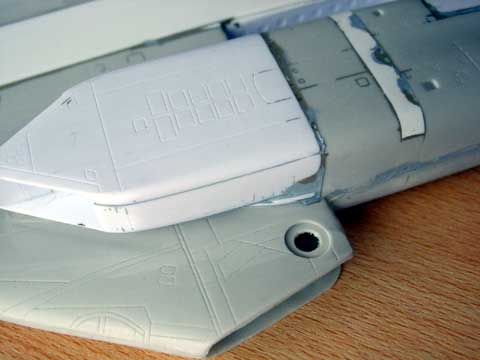
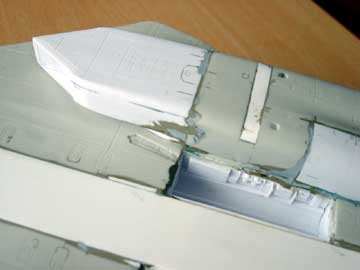
some work
still needed... as seen below
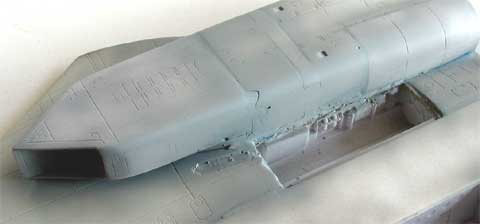
Fill... sand.... fill... sand....
Rear empenage
Step 21-22
The stabilizers and moving upper
tail connecting rods were replaced by metal rods for strength. The base
fairing 65+66 was put onto the rear fuselage and required with the rear
part #64 and forward edge some filling. The moving surfaces will be fitted
AFTER painting.
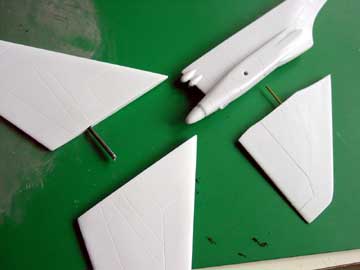
Wing gloves
Step 23-24
The swivelling wings have rotating
surfaces to close gaps (parts 122+123). This are simply rotated to get
a simpler mechanism by Tupolev. I decided to make the parts rotatable by
using very thin but flexible metal wire. These wires, 2 for each panel,
were set into tiny drilled holes.
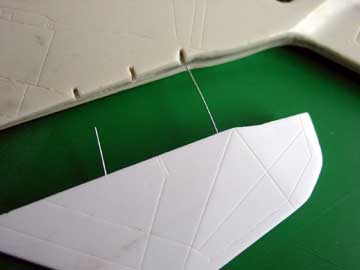
..
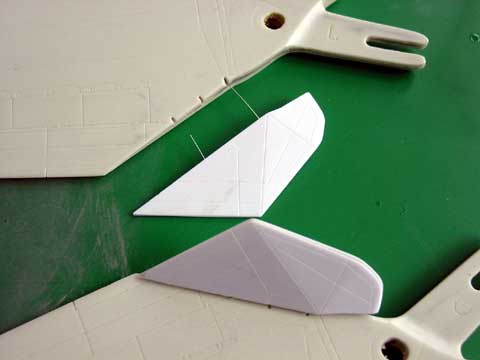
The wing glove fairings (parts 125+126) were also set in place and needed some filling with putty to get a good result.
The wing rotating points will be made
from thick metal pins, replacing parts 145-146.
Wings are to be set in place AFTER
painting.
Gears and wheels
The legs of main undercarriage come
in different small parts and are NOT string enough. I simply added metal
rods on the sides and blended this in with white glue. As the main gear
is hidden by large doors and the engine pods, not a lot of it will be seen.
Also, I drilled larger holes to receive metal pins for getting a good strong
joint with the main fuselage section. The Tu-160 model is very large and
heavy and really you need to do this!
The Model is very heavy and will not stand on its nose gear. Adding weight in its nose will make it very very vulnerable. I decided to utilize a "pogo stick". This will keep the model horizontal.
Step 5 with nose glazing and nose gear, Step 16 + 19 main gear;
On to next
[page
3]...

(c) Copyright Meindert "designer"/ All rights reserved. Your comments are welcomed by webmaster
Created this page : April 11, 2005